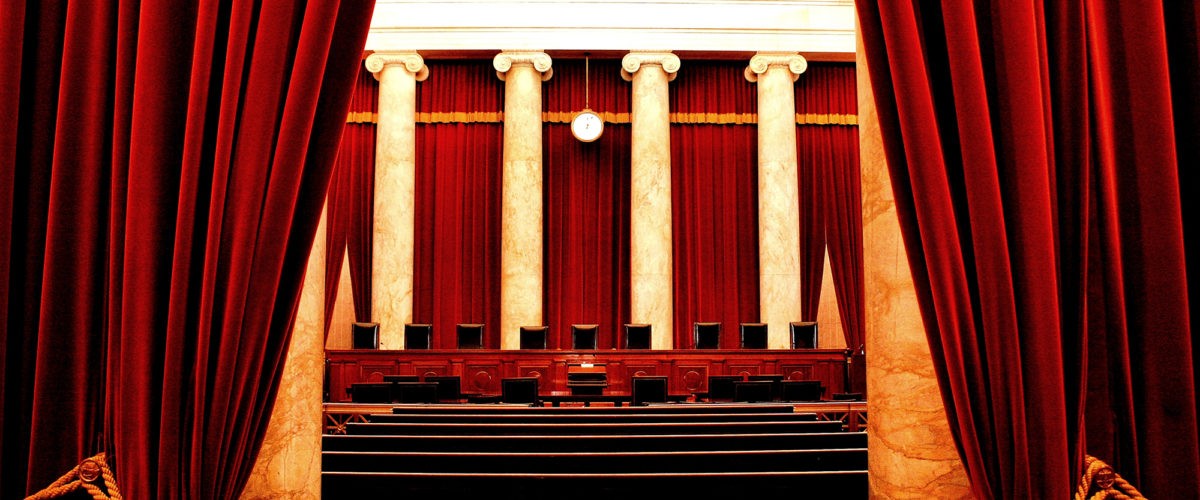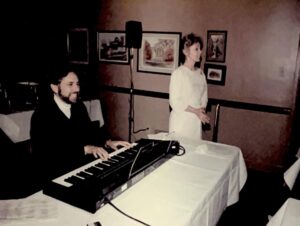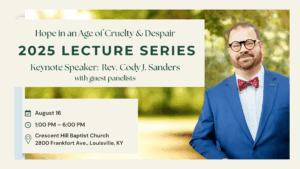Opinion | Written by Jordan Conley | July 23, 2025
Published originally by Baptist News Global
The U.S. Supreme Court is in summer recess, offering a temporary respite to the millions of Americans whose lives have been made more complicated by the court’s recent rulings.
Whether by upholding President Donald Trump’s executive order ending birthright citizenship, ruling that public schools must allow parents to remove their children from classes discussing LGBTQ people, or allowing Tennessee to enforce a law that prohibits doctors from prescribing hormone therapy to transgender children — over and over again, the court has ruled in ways that are shameful to many Americans.
Justices of the court are required to take oaths before they begin the duties of their appointed office. They promise to “administer justice without respect to persons, and do equal right to the poor and the rich.” The oath ends with a plea: “So help me God.”
But as the current court leads the nation deeper into a MAGA-driven moral amnesia, I fear our justices have forgotten both their oath and from whom they sought help. As the Psalmist remembered: “I lift my eyes to the hills — where does my help come from? My help comes from the LORD, who made heaven and earth.”
When a nation’s morality is severed from its memory, it forgets who it is and what it stands for. It ignores the complexities embedded within its stories. It forgets, as deportations rage, that other than Native Americans who were driven from their ancestral homeland, every American once was an immigrant — many of them poor, frightened and seeking refuge in the promise etched at the feet of Lady Liberty: “Give me your tired, your poor, your huddled masses yearning to breathe free.”
In Deuteronomy, the people are called again and again to remember:
- “Remember, you were slaves in Egypt.”
- “Remember the long way that the Lord your God has led you these forty years in the wilderness.”
- “Remember the day you stood before the Lord your God at Horeb.”
Over and over again, Moses implores the Israelites to remember. It wasn’t simply a call to rehearse past events. It was an invitation to allow the memory of what God had done to stir their imaginations to what God might yet do. Their collective memory informed their mission, empowered their empathy and gave them the good sense to recognize that none of them were “self-made.” Indeed, without God’s provision, the Exodus would have stopped at the shores of the Red Sea before it ever began.
Of course, the people did not always remember. So, God raised up prophets throughout the ages to remind the people of who they were and what was right and just. Amos spoke out against a society that had forgotten the poor and betrayed its calling: “They sell the righteous for silver, and the needy for a pair of sandals.” Hosea called for a return to love: “I desire steadfast love and not sacrifice, the knowledge of God rather than burnt offerings.”
Those who have ears, let them hear.
In this time of American moral amnesia, our congregations are uniquely called to the ritual of remembrance. We are washed in the baptismal waters of God’s embrace. We are fed at tables set not for the self-made, but for those who remember the words carved into many a wooden Communion table, “Do this in remembrance of me.”
It is the collective memory embedded within our rituals — our songs, our stories of God’s faithfulness — that serve and sustain us on the long way to justice. They are reminders in an amnesia-filled culture that we belong to a God who is at work right now to make a way when there seems to be no way.
The memory of the prophets is not nostalgia. It is a moral calling. And the church — perhaps more than any other institution in American life — is uniquely positioned to practice it.
So, when the Supreme Court returns this fall — and if, as expected, it issues more rulings that harm people on the margins — then our calling, as those who bear the name of Christ, is to continue speaking truth in love. We cannot wait on our politicians to recover their courage or convictions. We must step into the power of our prophetic collective memory.
And when our nation suffers from the symptoms of moral amnesia, may the church be the one to say: “I heard an old, old story. The story of the God who still moves in ways yet unknown. The story of a God who moved through the unanticipated faithfulness of foreigners like Ruth. The story of a God who worked through the riskiness of women like Rahab. The story of a God who took on flesh and lived among the poor, the outcast, and the forgotten.”
In an era of willful forgetfulness, the church must remember. And in a time of moral amnesia, the church must not only share that old, old story but live it.




